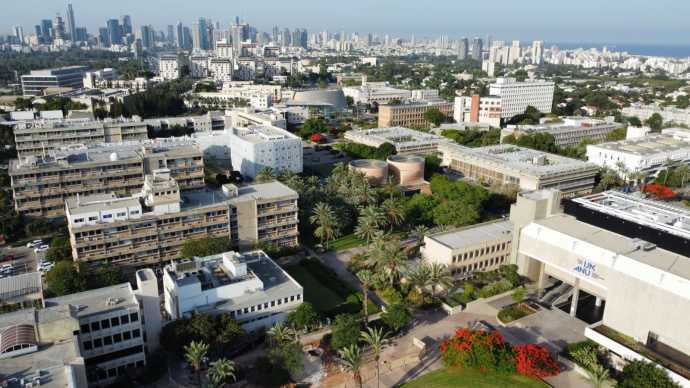Tel Aviv University has established the Colton Center, Israel’s first multidisciplinary center for the study of autoimmune diseases – chronic conditions involving an abnormal response of the immune system within body tissues. The Center will collaborate with Israel’s medical centers and health services, including HMOs and hospitals, as well as selected scientists from other academic institutions. The TAU research approach will be unique since it will be fundamentally based on big data analytics that will direct any traditional scientific wet lab work. The intent of the Center will be to grant research funding to multidisciplinary groups of scientists, including computer science, engineering, biology, statistics, mathematics, psychology, and more. The different research programs will be managed based on agreed-upon milestones with the ability to reach substantial sums upon success.
The multidisciplinary Center will collaborate with Israel’s medical institutions to enable big data analytics of medical information and biological samples from patients with autoimmune diseases and promote understanding of the causes of morbidity and recurrent flareups and possible early diagnostics and treatments.
The Center’s establishment was enabled by a generous donation of $10 million from TAU Governors Judith and Stewart Colton. It is the fourth research center founded by the Colton family to address autoimmune diseases, joining three centers already operating in the USA - at Yale University, the University of Pennsylvania, and NYU. In addition to its multidisciplinary clinical research, the new Center will encourage experimental and theoretical studies in immunology and conduct workshops and conferences jointly with the three other Colton Centers.

Prof. Ariel Porat, President of TAU: “Stewart and Judith Colton, renowned Jewish philanthropists and dear friends of TAU, have set themselves a goal: to develop drugs and treatments for autoimmune diseases. For this purpose, they have established dedicated centers at three leading American universities, and now decided to extend this activity to TAU. This donation is following many years of active contribution by the Colton Foundation to TAU’s innovation and entrepreneurship in a wide range of disciplines. We are proud to belong to this elite group of universities, and together with them and the Colton family, we will strive to find a cure for autoimmune diseases.”
Mr. Stewart Colton: “We believe the Consortium created by the four universities will multiply the opportunities for advancing the chances for successful research. We have worked with TAU for almost 40 years and recognize the unique talent and dedication brought to innovative science. It is a terrible disease that deserves more attention. I am particularly proud that Prof. Uri Nevo from the Department of Biomedical Engineering, one of the Colton Fellow graduates, was appointed to be the Chair of the Center’s steering committee.”
The category of autoimmune diseases covers over 100 diseases, with relatively familiar examples including lupus, multiple sclerosis (MS), psoriasis and Crohn’s disease. Autoimmune diseases are defined as diseases in which the immune system, instead of pathogens such as viruses and bacteria, or cells infected with these pathogens, attack the body’s healthy tissues. Even though autoimmune diseases have been known to science since the beginning of the 20th century, adequate tools are not available for prevention, treatment, or prediction of morbidity and recurrent flareups.
Prof. Uri Nevo from the Department of Biomedical Engineering, and Chair of the Center’s steering committee, explains that the Center’s purpose is to promote the study and understanding of autoimmune diseases in order to improve their prevention and treatment. The first goal, he says, is to obtain measurable results, identify early signs and develop predictive algorithms for both initial onset and recurrent flareups. Eventually, studies may provide explanations and possibly even discover the causes. Other goals are to define practical recommendations for preventing onset and recurrence or reducing the severity, and acquire new insights about disease mechanisms, enabling the development of new treatment strategies in the future.
To choose the focus of its research for the next few years, the Colton Center is presently sending out a dedicated survey to thousands of clinicians and researchers in Israel. “We want to hear the opinions of doctors and experts in order to focus on a limited number of diseases,” says Prof. Nevo. “We will start our research carefully and modestly, hoping that from the focused study we will learn about the basic principles underlying autoimmune diseases, and eventually impact the understanding of many of these diseases, and benefit vast numbers of patients.”
Written in cooperation with Tel Aviv University.
